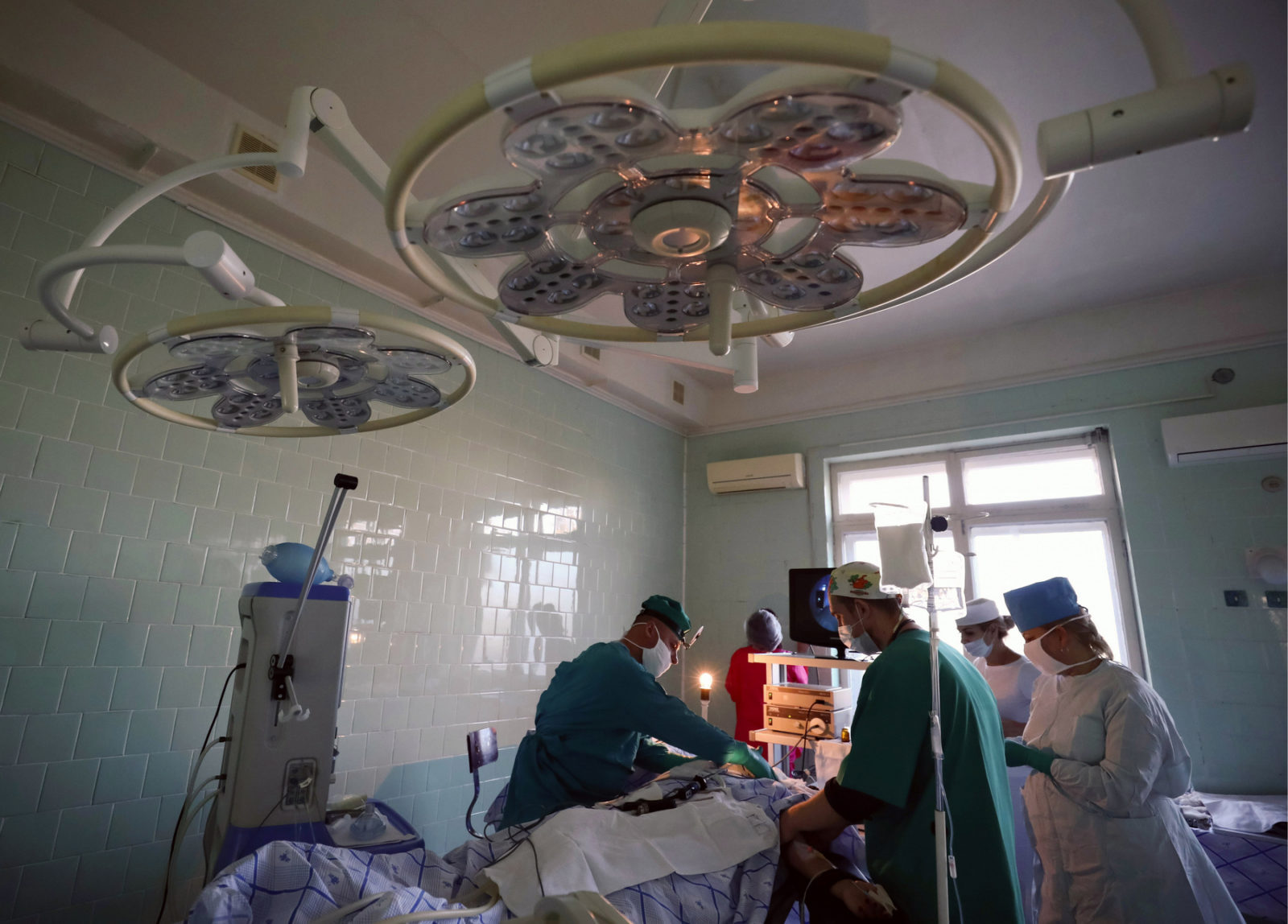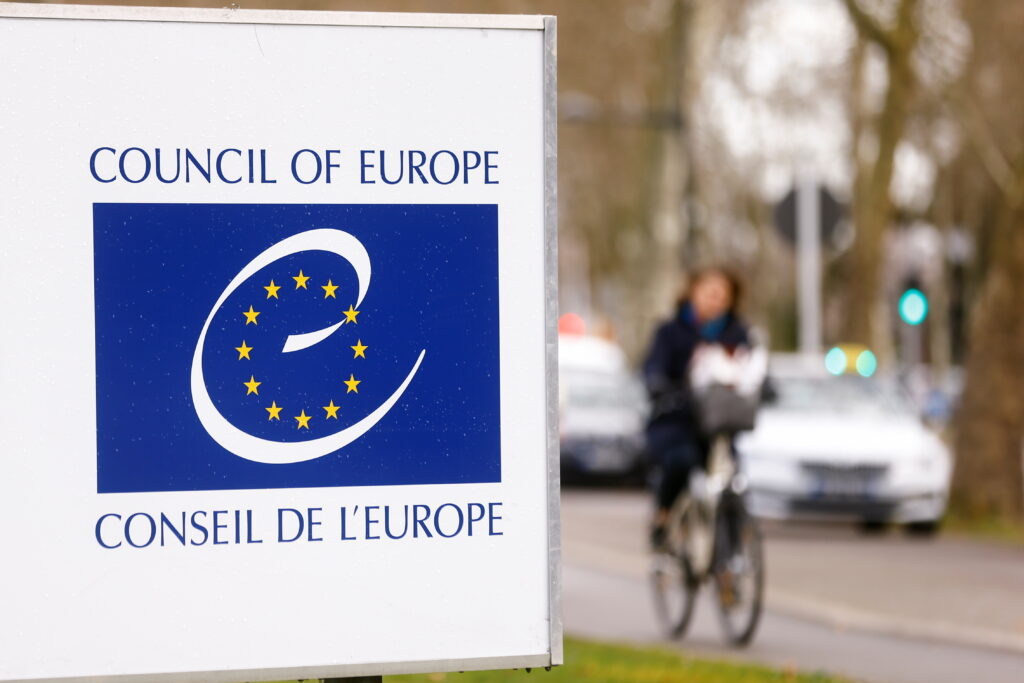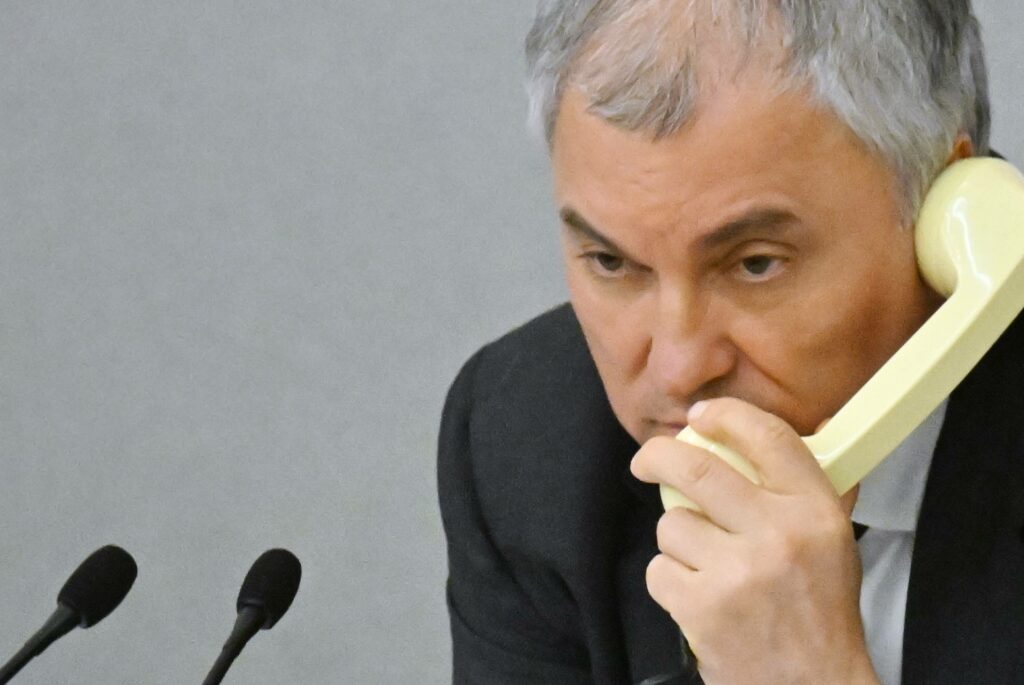In July 2019, Russia’s medical community was deeply disturbed by news of a murder charge. Elena Belaya, chief doctor of Kaliningrad’s Maternity Hospital No. 4 was charged with «organising a murder,» and her colleague doctor Elina Sushkevich, an intensive care specialist working at the facility’s perinatal unit was charged with «murder» (under article 105 of Russia’s criminal code.)
«There’s been nothing like this since 1953, when doctors were accused of deliberately providing improper treatment to members of the Politburo,» wrote Leonid Roshal, head of Russia’s National Medical Chamber, on Twitter.
The backstory is as follows: in November 2018, a premature baby weighing 700 grams was born at the Kaliningrad maternity hospital. According to the investigators’ account, acting head doctor Elena Belaya, aware that the baby’s death was highly likely, was concerned about worsening the hospital’s statistics and did not want to use its resources to try to save the newborn’s life. After discussing the situation with Belaya, Elina Sushkevich administered a lethal dose of a medicinal injection to the child, who died as a result.
Russia’s neonatologists reacted strongly, calling the murder charge an absurdity (the chances of survival of a child weighing just 700 grams stand at around 5−10%.) They suggested that the investigators had made a mistake.
A petition on the website change.org demanding an objective investigation into the case was signed by more than 140,000 people. Doctors launched the flashmob «I am Elina Sushkevich» on social networks.
In response, the press service of Russia’s Investigative Committee had to publish a detailed press release on the progress of the case, which emphasised that «bringing the doctor to justice is not an end in itself for the investigation.» Nonetheless, society was cleft in two: on one side were those who believed that medical professionals had a right to make mistakes, and on the other were those who believed doctors should answer for any and all defects in the medical services they provide.
There are no exact figures for how many people die in Russia as a result of poor quality medical services in public or private clinics. According to unofficial data, the number of such victims nationwide could be as high as 50,000 every year (this is a higher number even than deaths in traffic accidents.)
Data from VTsIOM, the Russian Public Opinion Research Centre, shows that only 9% of Russian citizens see the state of the healthcare system positively. Meanwhile, 52% harshly criticise healthcare provision, and 37% of respondents see the situation as satisfactory.
Today, the main opponent of Russia’s medical community is widely regarded as the Investigative Committee, which since 2016 has increased its scrutiny towards iatrogenic crimes (deaths caused by medical examination or treatment — ed.) One can only guess what prompted the agency’s chairman Aleksandr Bastrykin to tackle the problem. Perhaps, as an experienced politician, Bastrykin recognised that there was a growing trend in such medical cases and knew an opportunity when he saw one; after all, they do not cause any harm to «national security,» and addressing them could have been seen as a way to improve the agency’s image in the eyes of the public.
Furthermore, another possible reason for the investigative committee’s increased attention towards iatrogenic crimes was the strong opposition to such investigations from the medical community. The results of forensic examinations, which until recently were exclusively carried out by institutions answering to the Ministry of Health, play a key role in these investigations. Thus most of these cases simply did not reach the courtroom.
«The medical community protects its members, and since doctors themselves conduct examinations of iatrogenic crimes, it can be difficult to prove anything,» noted Russia’s former Prosecutor General, Yury Skuratov.
In 2016, special forensic departments were established within the investigative committee, which then started to render their own expert opinions on medical issues. Last year, 300 such cases were sent to court; this accounts for just 4.6% of all applications for cases filed, which hardly amounts to a fully-fledged «hunt for doctors.»
In the majority of instances the investigative committee refuses to initiate a case. Even when a case is launched, the reported violations do not always unambiguously constitute a criminal offence, meaning that the victims have no option but to file a complaint to the court. Unfortunately, the reparations paid for poor quality medical care cannot be called anything but pitiful. So in practice Russia’s courts (excluding those in Moscow and St Petersburg) demand an average of 500,000 rubles for the deaths resulting from poor treatment.
At the same time, the number of complaints from citizens to the Investigative Committee concerning medical errors and malpractice trebled between 2012 and 2018 (from 2,100 to 6,500 complaints.) The number of criminal cases launched on this basis increased by more than six and a half times over the same period (from 311 to 2,029). In fact, most complaints raised by citizens at all receptions attended by Bastrykin were related to the poor quality of medical services.
The first high profile case in which the medical community and investigators clashed was that of Elena Misyurina, a haematologist from Moscow who in January 2018 was sentenced to two years in prison for the death of a patient. Medical professionals mobilised, launching a petition online in her support and calling the work of the investigators a «propaganda campaign.» Leonid Roshal volunteered to be prosecuted himself in Misyurina’s place. Once the case had escalated, the big guns were brought out: Mayor of Moscow Sergey Sobyanin and Deputy Prime Minister of Russia Olga Golodets. The Moscow City Court overturned the sentence of the first instance court and remanded the case «to address violations.»
The Investigative Committee, which had had to «retreat» in the Misyurina case, responded in July 2018 with an initiative to introduce amendments to Russia’s criminal code which were specially designed to address crimes committed by healthcare professionals. Currently, misdeeds committed by doctors come under various articles of the criminal code (namely articles 109, 118, 238, and 293). As none of these articles takes into account the particular circumstances of medical practice, there was no uniformity in investigators’ approaches nor in judicial rulings on such crimes. In short, completely different articles of the criminal code were invoked to address very similar cases. For example, in Chukotka, one neonatologist responsible for the death of a baby was charged with providing services which did not meet safety requirements (section two of article 238 of the criminal code), while an analogous case in Tatarstan resulted in the defendant being charged with causing a death by negligence (section two of article 109 of the criminal code).
Russia’s investigative committee proposed adding new articles on the «inadequate provision of medical assistance,» «concealing a violation in the provision of medical assistance,» and «conducting illegal medical and or pharmaceutical activities,» (article 235 of the criminal code), as well as increasing the statute of limitations for criminal liability for patients’ deaths from two to six years.
Bastrykin’s department also advocated changes to the law «on the basis of public healthcare in the Russian Federation,» which oblige convicted doctors or those acquitted without rehabilitation to «undergo additional training and accreditation procedures relating to their profession.»
In November 2018, at the height of a scandal around the death of an 89-year-old survivor of a Nazi concentration camp whose legs were amputated by doctors in Voronezh, Bastrykin signed a decree establishing a specialised department for investigating iatrogenic crimes, which will be staffed by 28 employees.
An important development took place this year, when in March 2019, President Vladimir Putin proposed a bill to the State Duma which would allow the Investigative Committee to conduct its own forensic examinations. According to experts, this move will completely destroy the monopoly held by the Ministry of Health and its institutions in conducting them. However, while Bastrykin may have been head of the class at the faculty of law where Putin studied, Russia’s medical community also has a few levers of influence of its own. For example, Leonid Roshal was Putin’s confidant during presidential elections, as well as a leading activist of the All-Russia People’s Front, a political coalition between Russia’s ruling party and various non-governmental organisations.
It is now apparent that there are orders «from on high» for the medical community and Investigative Committee to try and reach some understanding and degree of cooperation. One indication of this is the fact that a joint working group of the Investigative Committee and National Medical Chamber is now considering the «feasibility of not imposing criminal liability for harmful acts towards the human foetus,» and is also developing an approach to satisfy the requirements of victims of medical malpractice «on the basis of the insurance model accorded to medical workers.»
Evidently, the initial version of the bill on amendments to Russia’s criminal code as prepared by the Investigative Committee will undergo comprehensive changes. These include a planned increase to the statute of limitations for criminal liability for medical errors, which currently lasts two years and is proposed to be extended to six. Given the specific nature of these case and the need for lengthy forensic examinations to investigate them, there are good grounds to justify such increases to the statute of limitations.
Medical professionals themselves say that doctors should not be behind bars for unintentional crimes, and human rights activists support their position. With the exception of the case against Misyurina (which was eventually closed), it is hard to recall a single instance in recent years wherein a court has pronounced a sentence involving an actual deprivation of liberty, such as a prison sentence. Nevertheless, there are also good grounds against fully legalising the right for doctors to make mistakes, as healthcare workers are demanding: it could lead to cases of impunity and further exacerbate a complex situation.
Our position is quite simple: any report of a medical error should be carefully checked. If a closer examination can establish a causal link between the actions of the physician and the onset of serious medical consequences, then the doctor should be held accountable for the latter. Such accountability should not take the form of a sentence in a prison colony, but should instead mean the deprivation of the doctor’s right to perform medical activities for a specific period. The injured party should also be fully entitled to a reasonable amount of monetary compensation from the hospital where the doctor had worked.










